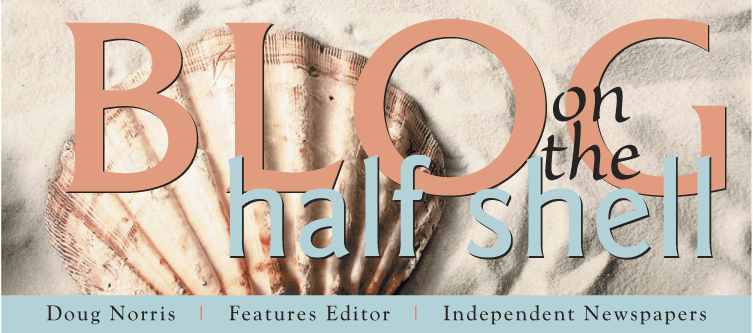Starting with the title, “Politics and Pasta: How I Prosecuted Mobsters, Rebuilt a Dying City, Dined with Sinatra, Spent Five Years in a Federally Funded Gated Community, and Lived to Tell the Tale,” the memoir is both self-serving and self-deprecating in equal doses, much like the former mayor himself. Love him or loathe him, readers should give Cianci credit for his frank, behind-the-scenes look at public service and private demons, told in a voice that is unmistakably his own, quick-witted and still advertising. (Throughout the book Providence is regularly referred to as “the great city of Providence,” a mantra that the former mayor can’t help himself from repeating.)
While the rest of the country might wonder what all of the fuss is about, there is much for Rhode Islanders to feast upon. Consider Buddy’s description of the Providence he inherited as mayor. After chronicling the city’s former glory, he writes about what it looked like in 1975:
Our downtown was practically deserted; the once grand hotel, the Biltmore, was closing; and, perhaps symbolically, the week I was inaugurated a crane was pulling out the grand piano from the second floor. The situation was so awful that even the American Bible Society, one of the last successful businesses we had, had packed its Bibles and moved out of town. Let me illustrate it this way: On the night of my inauguration the police got an emergency phone call that several monkeys were escaping from our zoo. You know you’re in trouble when your monkeys are trying to get out of town.
A legendary campaigner, who always believed that there was “no substitute for hitting the streets and shaking the hands of voters,” Buddy was beloved by Providence residents because he never missed a graduation, communion, confirmation, bar mizvah, Little League opener, breakfast, picnic, wedding or parade if he could help it. He recalls one trip to a Portuguese Democratic Club event:
They roasted a pig over an open fire and then proudly explained the old tradition, the guest of honor gets to eat the eye. I looked at this big thing looking right back at me and I thought, Eat the eye? You gotta be nuts. But there were a lot of potential votes watching me. I gotta eat the eye. I took a deep breath and swallowed it. Then I looked at the crowd and said with as much disappointment as I could pretend I felt, “What? I only get one?”
The book is filled with such moments, making it a fun read for the Rhodyfile. From time to time, in the middle of a sentence or a paragraph, he’ll just start pitching Providence with a line like: “…by the way, if you’ve never been to Providence you are missing a wonderful experience; come for WaterFire…” He considers himself the city’s greatest salesman (it’s hard to argue the point) and believes his most important lasting accomplishment was raising the self-esteem of Providence residents.
Amid stories of clashing egos and politics as usual, Buddy articulates the patchwork ideas that became his vision for Providence. They include a commitment to historic preservation (“In Providence history was our future.”); an emerging realization of the importance of celebrating the city’s diversity and ensuring fairness (“To me all people were equal; they were all potential votes.”); the significance of a thriving arts community to restore the city’s vibrancy ("I used artists as the shock troops of neighborhood rehabilitation...We had more artists per capita in Providence than any American city...Artists value space above comfort, and that's what we could offer them."); and a mayor’s most critical responsibility (“The single thing that every northern mayor is judged by is how quickly the streets get plowed after a snowstorm. Snow is apolitical; there is no Democratic or Republican way to clear the streets.”)
Buddy doesn’t ignore his other legacy, the criminal assault charge that forced him out of office the first time and the federal prison stint for being found guilty on the charge of conspiring to violate the RICO act. He explains his version of events, diffusing any painful memories with trademark one liners (“According to a Brown University poll, on the day I was indicted my approval rating actually went up four points.”)
Potential mayors might want to consider his sage advice. The book is a primer for anyone looking to run for office in Rhode Island. (“Don’t get between a voter and their bingo card.”) He even offers tips for marching in a parade. (“For obvious reasons, never, ever march behind a horse...Never march behind a bishop either, because he’ll stop frequently to bless people, and they make the sign of the cross, so they can’t clap for you. And don’t march in front of the parade queen’s float because no one is going to be looking at you.”)
It’s all here. Putting guards armed with shotguns on garbage trucks. Canceling The Who concert at the old Civic Center. Saving the Ocean State Theatre from the wrecking ball. Flirting with casinos. Putting police on horses and replica gas lamps on Federal Hill. Bringing the Providence Bruins to town. Trying to get Frank Sinatra’s mother’s doctor’s kid into Brown. (He couldn’t.) Attracting the X Games and Gravity Games. Becoming a champion of gay rights. Building a public ice skating rink in a derelict part of Downcity. Pardoning the Big Blue Bug. Commissioning the sloop Providence. Welcoming trolleys and gondolas. Launching the nation’s first tax-free arts district. Going on the radio with Imus. And much more. Good Buddy. Bad Buddy. Every Buddy in between.
What is your favorite Buddy story?

